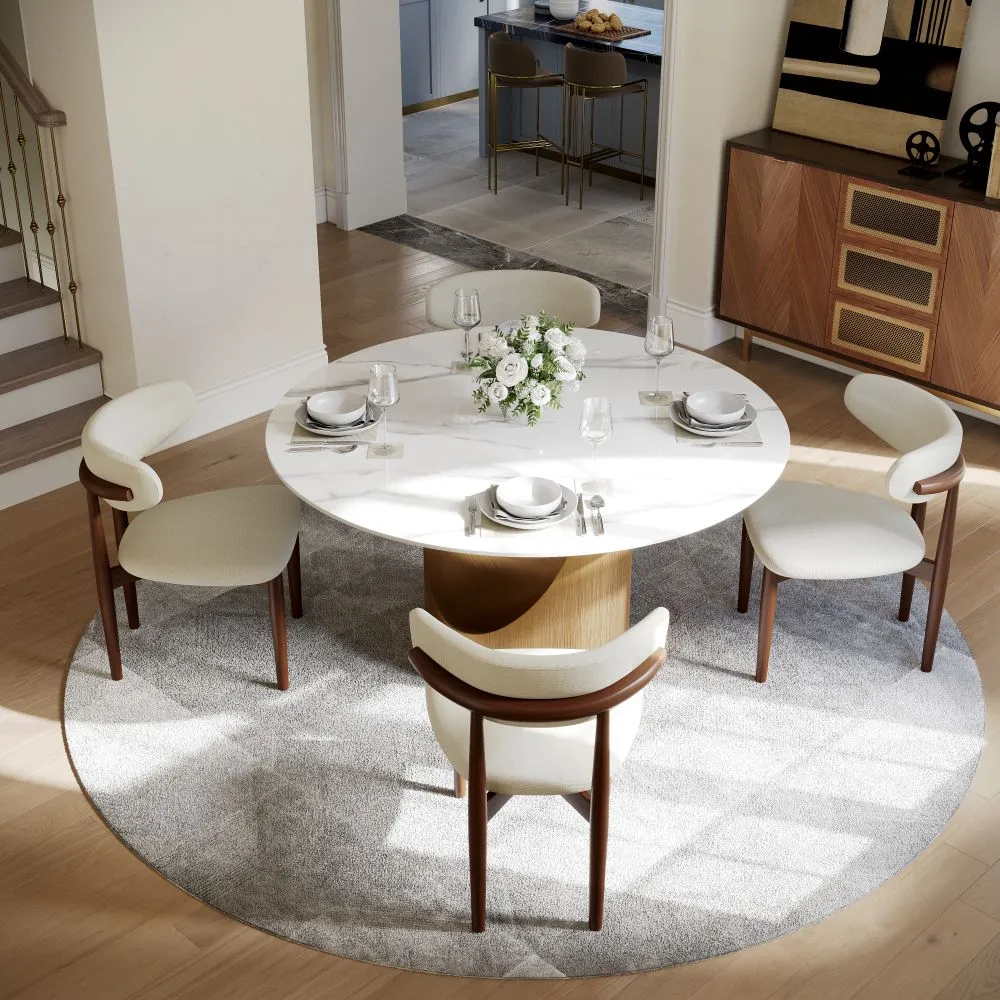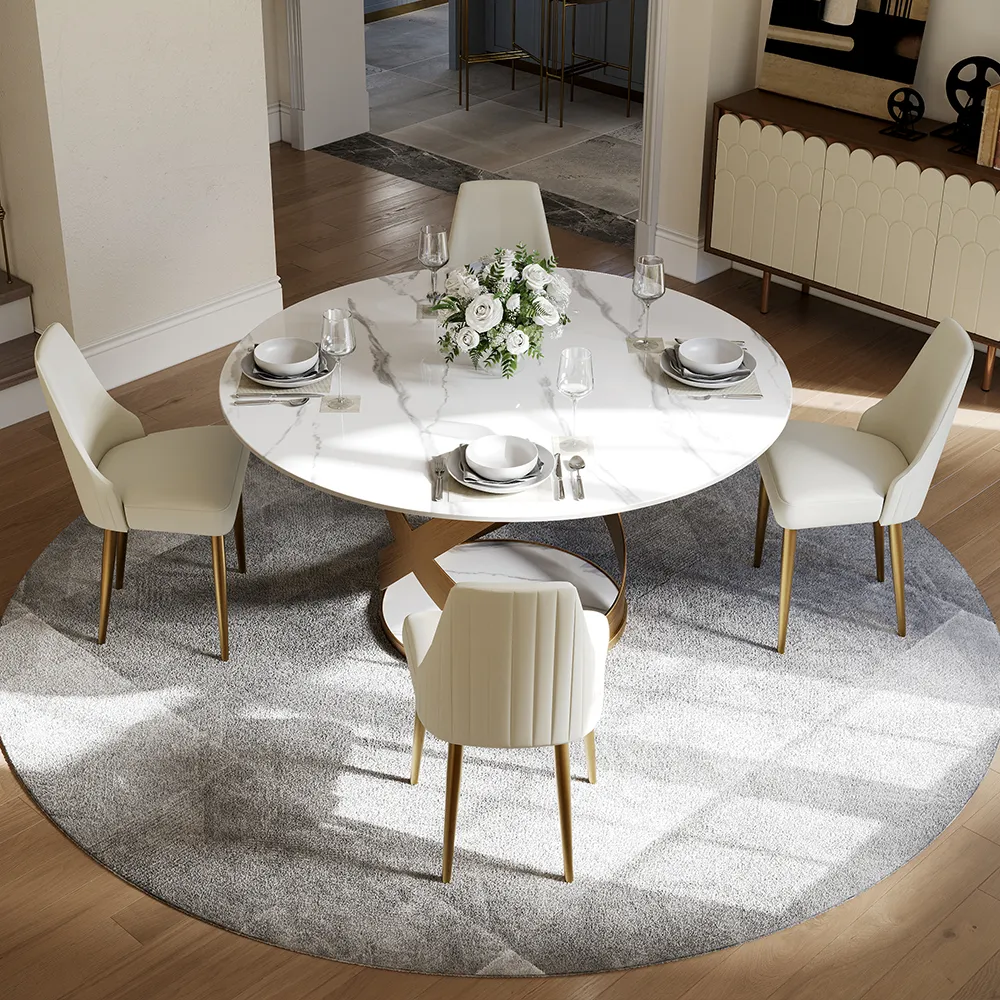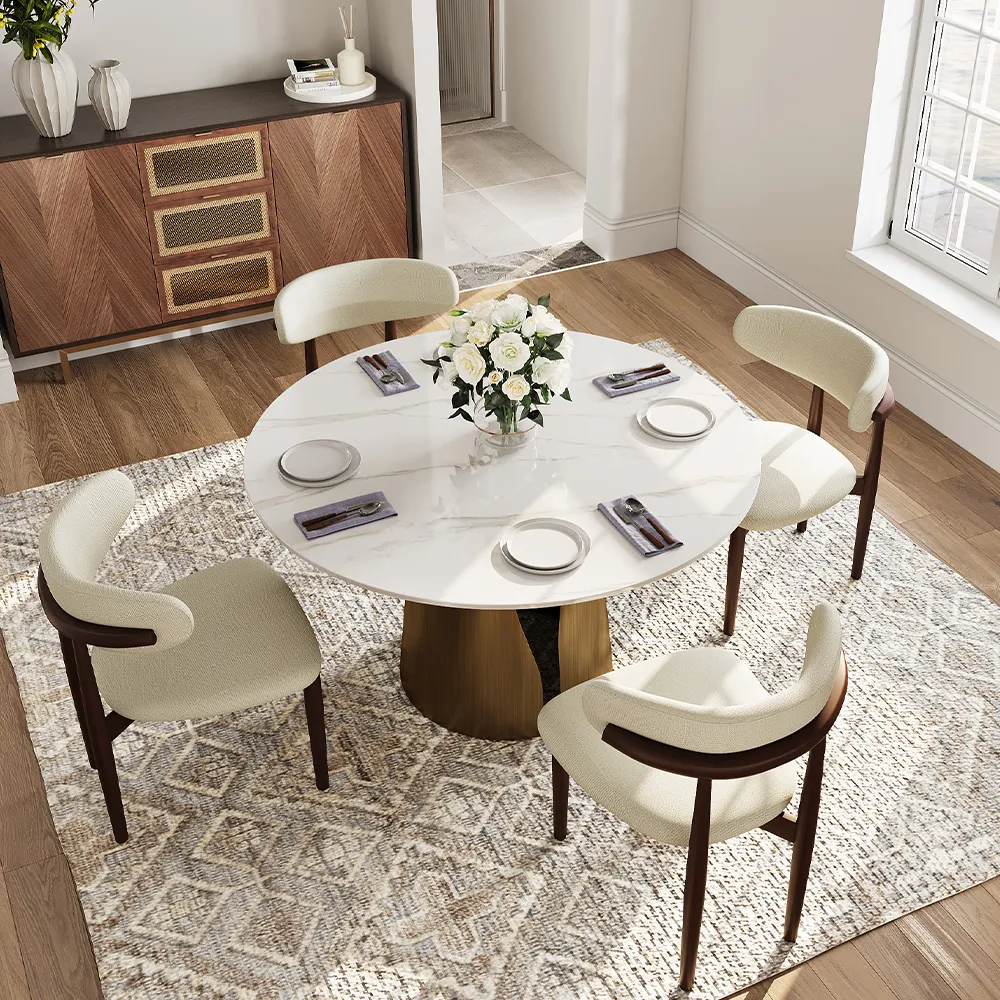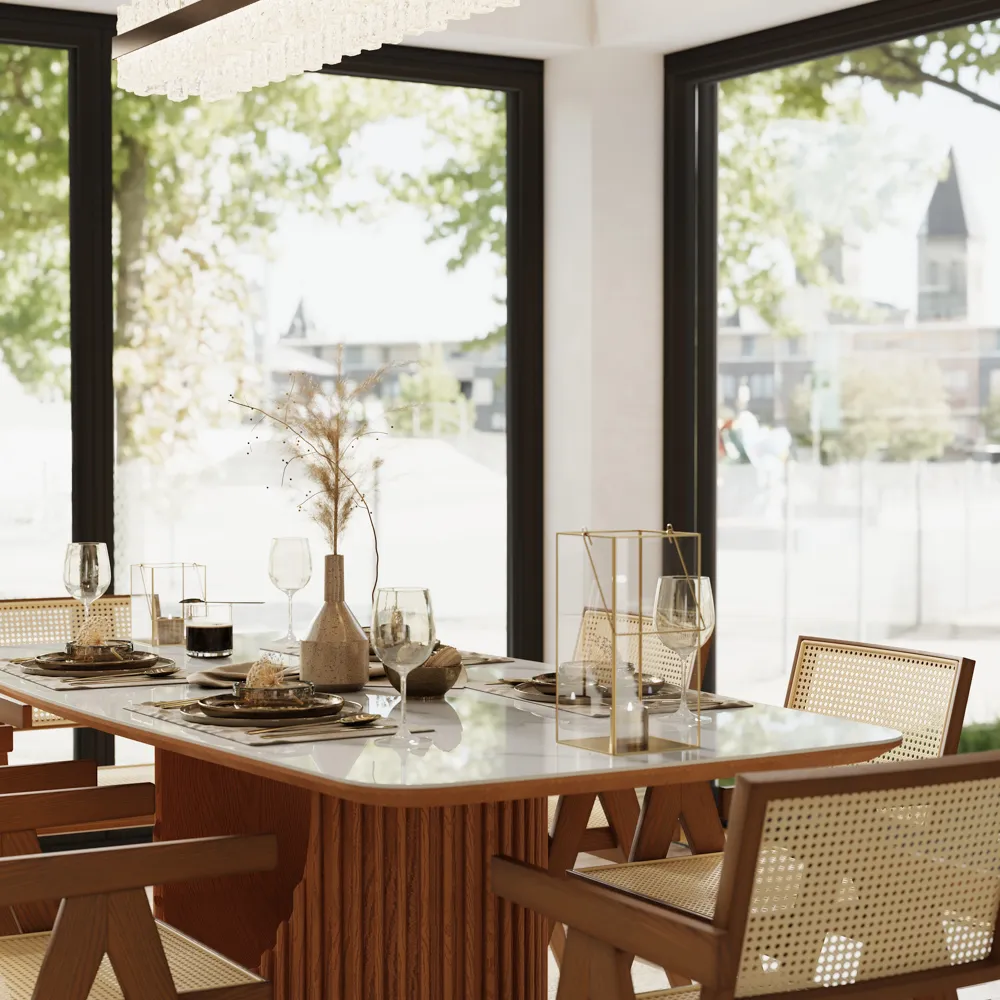In this article, we’ll explore the science behind sintered stone’s heat resistance, how it compares to other materials, and whether hot cookware will leave lasting damage.
What Is Sintered Stone and Why Is It Gaining Popularity?
Sintered stone is a revolutionary surface material crafted by subjecting natural minerals to intense heat and pressure, typically over 2,000°F. This process fuses the particles into a solid, non-porous, and incredibly strong slab that mimics the look of marble or granite without their weaknesses.
Today’s homeowners are drawn to sintered stone for good reason: it’s stain-resistant, scratch-resistant, waterproof, and yes, heat-resistant. Whether you’re designing a minimalist space or a family-friendly dining area, a Sintered Stone dining table offers a modern edge without sacrificing durability.
Is Sintered Stone Really Heat Resistant?
Yes, sintered stone is highly heat resistant. Unlike quartz, which begins to degrade around 150°C (302°F), sintered stone can often withstand temperatures above 300°C (572°F) without discoloring or cracking. Its mineral composition and manufacturing process make it particularly resilient against daily wear and tear, including thermal stress.
This means it’s generally safe to place moderately hot items like plates, mugs, or warm serving dishes directly onto the surface. However, “heat-resistant” doesn’t mean “heat-proof”—there are still some guidelines you should follow to protect your investment.
Can You Place Hot Pots or Pans Directly on a Sintered Stone Dining Table?
The short answer: yes, but with caution.
While sintered stone can tolerate high temperatures, placing extremely hot cookware (like a cast iron pan straight from a 500°F oven) directly onto the surface can cause thermal shock, especially if the surface is cold or the table has a matte or textured finish. In rare cases, this can lead to hairline fractures or aesthetic damage.
To keep your dining table in pristine condition:
-
Use trivets or silicone mats under pots and pans.
-
Avoid setting cookware that exceeds 300°C directly on the stone.
-
Don’t use the same hot spot repeatedly—rotate placements to distribute wear.
In short, sintered stone handles heat better than most materials, but a little protection ensures it stays beautiful for decades.
How Does Sintered Stone Compare to Other Tabletop Materials?
| Material | Max Temp Tolerance | Heat-Related Risks |
| Quartz | ~150°C | Can discolor, scorch, or crack |
| Granite | ~260°C | Porous; may crack under thermal shock |
| Marble | ~180°C | Prone to etching and discoloration |
| Sintered Stone | 300–500°C | Superior heat and stain resistance |
Sintered stone outperforms traditional materials in most kitchen and dining scenarios. For those seeking a long-term, low-maintenance, and stylish solution, it’s a clear winner.
Practical Tips for Daily Use
To get the most out of your sintered stone surface, here are a few everyday best practices:
-
Use trivets: Especially for pans fresh from the stove or oven.
-
Wipe spills quickly: Although sintered stone is non-porous, acidic liquids (like lemon juice or red wine) can etch certain finishes over time.
-
Avoid thermal shock: Let hot cookware rest for a few seconds before moving it from the oven to the table.
-
Clean with mild soap and water: No need for bleach or abrasive cleaners.
Heat-Resistant Dining Tables from Povison: Ready to Live In
Looking to upgrade your dining room with a heat-resistant surface that blends beauty and practicality? Here are three standout pieces from Povison, the world’s best fully assembled furniture brand, designed to be ready to live in from the moment they arrive.

The Modern Minimalist Dining Table with Bronze Carbon Steel Leg offers a bold yet compact look, perfect for small apartments or modern breakfast nooks. Its dark matte surface is stylish and understated, and easy to keep clean.

The 51″ Modern Round Dining Table is perfect for families or hosts. The integrated Lazy Susan is ideal for shared dishes, and the light stone finish complements a wide range of interior styles.

The Round Sintered Stone Dining Table with Carbon Steel Leg makes a dramatic statement. With its clean lines and durable base, it’s ideal for those who want a piece that’s both functional and a conversation starter.
Each piece is fully assembled and crafted with sintered stone that’s built to resist daily heat and heavy use—no complicated setup required.
Final Thoughts: Beautiful, Durable, and Heat-Safe
So, can you place hot pots on a sintered stone table? Absolutely—just be mindful of extreme temperatures and protect the surface when needed. With its impressive heat tolerance and low-maintenance appeal, a Sintered Stone dining table is a smart choice for modern living.
Ready to upgrade your dining space with a surface that’s beautiful, practical, and ready to live in? Explore Povison’s sintered stone collection today and find your perfect match.
